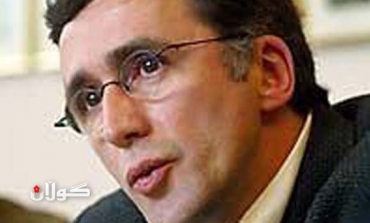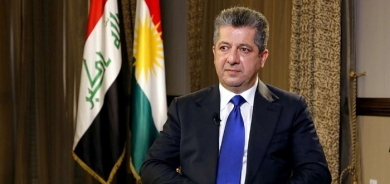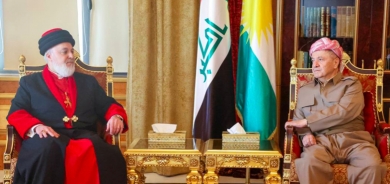Resat Kasaba to Gulan:There is no doubt that the region is becoming ever-more democratic and representative as a result of the ongoing changes
August 2, 2012
Exclusive Interviews

Resat Kasaba is Stanley D. Golub Chair and Director, Jackson School of International Studies, The University of Washington. We contacted the Professor Kasaba to discuss the current changes in the Middle East, and the Professor Kasaba responded to our questions in an exclusive interview to Gulan as the following:* Experts think that the changes in Middle East will re-categorize the powers and will distinguish the alliances again. According to your view; to what extend these changes will re-organize the regional equation in the area?
- We are limely to see a more fluid environment where alliances will be formed around special issues. Unlike earlier periods there will not be permanent divisions or alliances. Even Iran and US may find themselves working together around common issues.
* Turkey, as the closest ally to the west and NATO member, with the Gulf States especially Saudi Arabia and Qatar want to play an important role in Middle East. To what extend Turkey may succeed in this task and its steps will be approved by US and West?
- Turkey has some advantages. It has cultural affinity with the region and its economy is booming. At the same time, historically the relations between turkey and its predecessor, Ottoman Empire and the Middle East were not always very good. To the extent that this relationship can be kept confined to economic issues and interests, turkey may succeed in playing an important role.
* Syria is an important spot for Iranian influence in the area, in which currently Russia is also supporting the position of Iran. In your view; to what extend the axis of Russia, China and Iran can consolidate their influence in the area against the West?
- China's main interests are economic; trade and investment. Iran is losing one of its most important allies, Syria. Russia seems to be holding onto Syria as its last client state in the region. I don't see these three coming together and act as parties to an alliance. Their interests are too diverse.
* With the downfall of Assad's regime all the international divisions will be more disclosed which is quiet risky for violence and war to appear in the area again and prevent stability to be achieved. To what extend Middle Eastern instability will be threatening instability in the area?
- This is the biggest danger. In places like Lebanon, Turkey and Iraq we are likely to see the repercussions of a long conflict and Civil War in Syria. Containing this is and should be the number one priority for the US, NATO, and others.
* Last Question: Some experts think that the Middle East changes resemble the changes of Middle and Eastern Europe, to what extend there are predictions for new countries to be created following the changes in Middle East for example Palestine state and a state for Kurds?
- I don't see this a likely outcome in the immediate future. But in terms of long term changes, despite all the problems and reversals, I see the direction of change I moving in the right direction in the region. There is no doubt that the region is becoming ever-more democratic and representative as a result of the ongoing changes.















